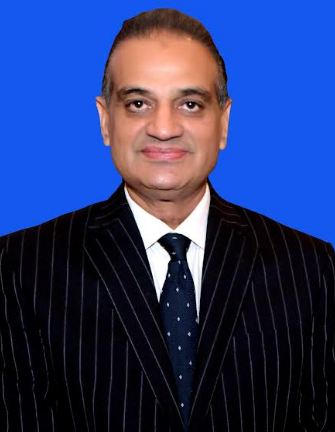Opinion
Ansar Mahmood Bhatti
The promise of democracy at the grassroots level in Pakistan continues to be sabotaged, and the latest episode comes from Punjab, where the long-awaited local government (LG) elections have once again been thrown into disarray. The Election Commission of Pakistan (ECP), which had earlier announced the delimitation of constituencies to ensure that the elections could be held by December this year, has now abruptly withdrawn its decision. The Commission has asked the Punjab government to first carry out the required legislation before proceeding with the polls a move that clearly signals another indefinite delay.
This sudden reversal by the ECP has pushed the entire process back to square one. It appears, quite evidently, that the Punjab government is not interested in holding the LG elections any time soon. The reluctance is not administrative or procedural it is political. The provincial government, like many before it, seems unwilling to share power with the people at the grassroots level. This attitude is not new; it has become a hallmark of successive governments across Pakistan, irrespective of their political color. Every ruling elite pays lip service to the ideals of democracy and decentralization, but when it comes to actual empowerment of the people, they pull back.
Local governments, by design, are the foundation of democracy. They ensure that development decisions, governance issues, and public services are managed closer to the people. They help identify local problems, prioritize them, and address them efficiently. Unfortunately, Pakistan’s political elite has always viewed local governments as a threat to their centralized power. This mindset has prevented the country from evolving into a true democracy where power is distributed equitably.
It is not only Punjab that suffers from this malaise. The situation across the country is equally discouraging. In Islamabad, there is no functioning local government. Despite elections being held in the past, the elected representatives were never granted real authority or resources. In Sindh and Khyber Pakhtunkhwa, too, local governments have often been rendered powerless through bureaucratic controls, budgetary restrictions, and legislative loopholes. In Balochistan, LG elections were held after long delays, but the councils remain weak and ineffective.
Every time there is a schedule for local elections, something happens to derail it. Either courts intervene, legislation remains incomplete, or administrative excuses are cited to push the matter aside. These repeated disruptions raise serious questions: Who are the forces that do not want the people of this country to prosper? Who benefits from keeping citizens poor, illiterate, and powerless? Who gains from the denial of local governance and from keeping development decisions confined to the elite corridors of power?
The answer is both simple and disturbing it is the elite class that has kept Pakistan perpetually unstable and dependent. This class comprising a mix of politicians, bureaucrats, landed aristocracy, and powerful interest groups thrives on centralized control. They understand that once people at the grassroots level are empowered, their monopoly on politics will be broken. Local leaders, closer to the people and more accountable, would rise and challenge the traditional power structure. Vote buying, manipulation, and dynastic politics would become increasingly difficult.
The Punjab government’s hesitation to hold LG polls exposes this deliberate resistance. Despite tall claims of democracy and service delivery, the ruling elite remains unwilling to devolve power.
The irony is that Pakistan’s Constitution, under Article 140-A, mandates the establishment of local governments and the devolution of political, administrative, and financial powers to them. Yet, successive governments have treated this constitutional obligation as optional. The ECP, too, often bows to political pressure instead of asserting its autonomy and ensuring timely elections. The current development, where the ECP has withdrawn its own decision on delimitation, reinforces the perception that even independent institutions hesitate to confront political elites.
If democracy means representation and accountability, then the absence of local governments makes the entire system hollow. National and provincial assemblies cannot effectively address community-level problems.
Even in Islamabad, the capital city that should ideally set an example of governance, the local government structure is paralyzed. The courts have intervened several times, election schedules have been announced and withdrawn, and the elected representatives have often been sent home without being allowed to serve. The citizens of Islamabad, despite living in the heart of the federation, have no say in how their neighborhoods are managed.
The situation in Punjab mirrors this dysfunction. After multiple delays and promises, the hope that elections would finally take place in December has now faded. The ECP’s decision to step back and the government’s lack of urgency indicates that the issue will once again be shelved indefinitely. This cycle of announcement, delay, and cancellation has eroded public trust in both the electoral process and democratic institutions.
The absence of local governance has broader consequences. It deepens inequality, weakens service delivery, and fuels frustration among citizens. It also strengthens the perception that democracy in Pakistan serves only the powerful, not the people. Real progress whether in education, health, sanitation, or economic opportunity depends on effective local governance. When people are excluded from decision-making, corruption flourishes, and development funds are misused.
For how long will this continue? For how long will political leaders talk about democracy while denying its essence? For how long will the people be kept poor, uneducated, and dependent? Unless these questions are answered, Pakistan’s democratic journey will remain incomplete. The elite class must realize that sustainable progress requires empowering citizens, not controlling them.
True democracy begins from the bottom up from the neighborhoods, towns, and villages where real lives unfold. Empowered local governments can become engines of change, development, and accountability. But that will happen only when those in power allow it to happen. Until then, democracy in Pakistan will remain confined to speeches, slogans, and ceremonies.
If Pakistan truly wishes to prosper, it must break free from this cycle of centralized control and deliberate disempowerment. The revival of genuine, functional, and empowered local governments is not merely a political necessity; it is a moral and constitutional obligation.

















